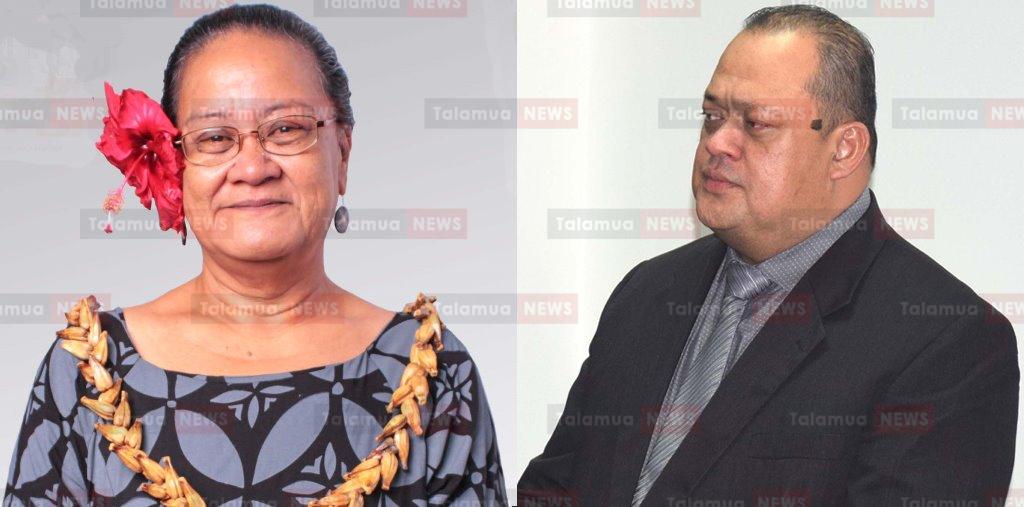Court
LTC President’s counsel agrees the Minister is the head of the Ministry of Justice

By Lagi Keresoma
APIA, SAMOA – 14 MARCH 2022: Counsel for the President of the Land and Titles Court, Leilani Tamati, agreed that the Ministry is headed by the Minister, and under the landscape of legislation can direct the staff of their duties and functions.
This came out in today’s hearing of the claim by the President of the Land & Titles Court, Fepuleai Atila Ropati that the Minister for Justice & Courts Administration, Matamua Sili Vasati Pulufana has no authority or power to give directions to hold the operations of LTC hearing proceedings. The President sought a declaratory order from the Supreme Court to justify their claim.
Presiding was the panel of Judges that comprised the Chief Justice, Satiu Simativa Perese, Senior Judge Vui Clarence Nelson and Judge Niava Mata Tuatagaloa.
Central to their argument was the doctrine of the separation of powers of the Executive, Parliament and Judiciary, and also people’s access to justice.
Background to the case
The case started when the Minister and President discussed the issue of holding off all LTC hearings for February and March through an exchange of letters.
On 15 February, the Minister wrote to the President requesting and citing concern over the continuation of LTC proceedings while the Special Parliamentary Committee is investigating why there are four different versions of the LTC Act 2020 in use.
Fepuleai wrote back on 18 February informing the Minster that Cabinet was intruding on the doctrine of separation of powers by giving directives; but did agree to hold off work until such time.
By letter on 24 February, he informed Minister that LTC will resume its operations in March but did not name a specific date.
However the Minister held on to the President’s agreement to suspend LTC proceedings for two months.
Was it a “request” or “directive”
The question whether the Minister requested or directed the President came up often during the hearing. At one time, Chief Justice Satiu Simativa Perese reminded Leilani Tamati that the word used in the Minister’s letter was “request”.
However, she said that it can easily mean a directive.
Minister’s power as head of the Ministry
Tamati insisted throughout the proceedings that the essence of their argument was the Minister having no authority to issue or direct the administration of the Land and Titles Court. She referred to the Ministry staff being asked not to assist with LTC matters.
Chief Justice Perese asked her to provide evidence and she cited a correspondence between the President and the Acting Chief Executive Officer at the time, Aumua Ronnie on the Ministry’s state of affairs.
Some of the issues raised in the correspondence include stopping staff from giving assistance.
Tamati cited Attorney General Su’a Helena Wallwork-Lamb’s submission where she cited Section 4 of the Judicature Act 2020 on the authority and responsibility of the Minister.
“What law does it say that Section 4 of the Judicature Act gives sufficient power to the Minister to give direction?” asked Chief Justice Perese.
Counsel responded that all administrations are subject to the Chief Justice and the Registrar is responsible to the Minister of Justice.
Justice Niava Mata Tuatagaloa followed up the line of questioning and asked counsel if that was what his client wanted; to have control of staff under him and whether she was asking the Court to read that into the legislation?
Counsel responded that the LTC President should have the same right.
Infringement of the independence of the Judiciary
Justice Tuatagaloa pointed out that the Court administration is provided by the Ministry under the Minister, and under the landscape of legislation, the Minister under those roles can direct the staff of their duties and functions.
Counsel agreed but said “there was a fine line between,” but Justice Tuatagaloa intervened.
“Do you agree that she (Minister) can do so as long as the function she requested or directed does not hinder the operations and the functions of the court?” she asked.
“Agreed and that is why the separation of powers is so crucial, and these requirements are, how far the Minister can take her duty as she understands it,” responded Tamati.
“It is not really an issue of separation of powers because she does have the power, but rather the infringement to the independence of the Judiciary,” said Justice Tuatagaloa.
“If the court cannot function, justice cannot adjudicate on matters,” she added.
The decision is reserved.

























